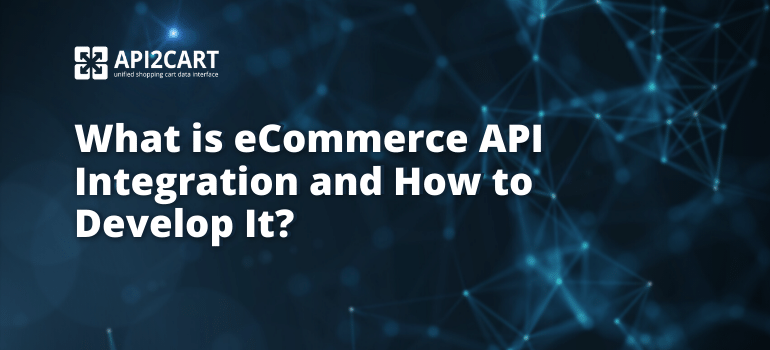
The eCommerce market is growing fast, gradually changing the way that software vendors deal with their clients. With so many vendors in the eCommerce software business, each one of them is competing to be unique by what they sell. Given this fact it should not come as a surprise that these firms are finding it difficult to make money.
Developing eCommerce API integration would allow the software providers to reach untapped markets and potential customers.
API integration allows software providers to connect their solutions with shopping platforms like Magento, Shopify, etc. API serves as a link of data exchange between eCommerce software and the platforms.
This article explains what eCommerce API integration is and how it can be achieved with various platforms.
Meaning of API Integration
An application programming interface (API), a machine-readable set of rules, enables software products to communicate with each other and exchange data. From a technical standpoint, it is a set of programming statements that allow data to be transferred between different apps and software.
As a software provider, you can interact with different external apps via APIs. You can also use APIs to add specific functionalities to your software and trigger the development process.
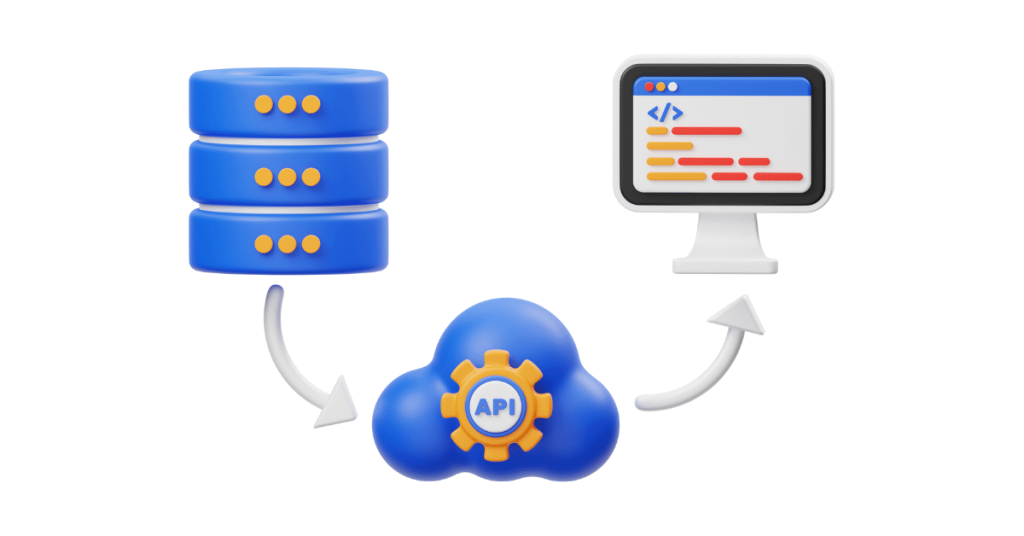
API integration occurs when a connection is made between the APIs of two or more applications. This integration enables two systems or software to interact with each other and exchange different types of data.
API integration allows eCommerce software vendors to enhance the functionality of their applications by tapping the power of other systems and applications.
Principles of API Integration Working
The incoming requests and outgoing responses must be translated to enable communication between the application programming interface (API) and the other functional units. The incoming request must be translated so that the outgoing response is understandable. Integrating an API, therefore, makes the two API layers communicate with each other and exchange data in a way that allows the data to be synced across connected applications.
Companies that provide eCommerce software are in need of eCommerce API integrations to build the connection between their solutions and platforms and marketplaces like Amazon, WooCommerce, Magento, Neto, Shopify, CommerceHQ, etc.
An eCommerce API integration is a way to connect eCommerce software with shopping platforms so the former is able to perform its functionality with the help of shopping data retrieved from the latter.
Shopping platforms’ data connected to products, orders, customers are essential for eCommerce software providers that operate in the sphere of:
- Order and inventory management
- Dropshipping automation
- Product information management
- Marketing automation
- POS
- Shipping management
- ERP
- PIM
- Data feed management
These solutions require data from the e-store to perform their specific functions and help the e-merchants to automate their business operations.
What is an eCommerce API Example?
Here's an example of how an eCommerce API can be used to connect an eCommerce store with a marketing automation platform:
1. Customer adds an item to the shopping cart: Now, the shopping cart API can be used to send a message back into the marketing automation system.
2. Marketing automation platform identifies the added product: They, therefore, can communicate to get information about products, such as the name of a product executed from your eCommerce website. Product price is also requested.
3. Based on product preferences: Then, based on the products purchased by that individual customer in the past, this marketing automation platform will launch a customized email follow-up campaign to recommend other items of note and offer coupon discounts.
4. Customer purchases the product: The software next sends the information to the eCommerce store's API and uses it for a purchase. All of these activities are knowable by a company through its own tracking marketing automation platform, including who bought what products and so forth.
5. The marketing automation platform updates customer records: It is designed to keep a record of customers 'purchases so that it can serve them more precisely in the future.
It shows just how smooth access to eCommerce APIs can make things, allowing businesses to build a much more business-oriented workflow that provides customers with better service.
What are the Best eCommerce APIs?
- Shopify API
- WooCommerce API
- Magento API
- eBay API
- BigCommerce API
- Salesforce Commerce Cloud API
Shopify, with its massive popularity on the eCommerce side of things, offers another powerful tool — their API. It offers all kinds of functions, such as those for the management of product carts and customer information.
Another widely-used eCommerce platform, WooCommerce's API would be a great option for any business that needed more flexible support than is offered by Shopify. Furthermore, it's open-source too so developers can adapt it.
But Magento is a more enterprise-level eCommerce platform, and the emphasis of its API still rests on companies with shops that require greater control. It's a very flexible API, and developers can use it to build features and customize everything.
The eBay API is used to connect a developer's eCommerce software with the marketplace.
BigCommerce is an approachable eCommerce platform and its API offers up a veritable toolbox to software developers approaching online store management. They incorporate functions of cart management, product information and customers.
The Commerce Cloud is an eCommerce platform that offers businesses several types of features in the cloud.
How Long Does It Take to Integrate with eCommerce Platforms?
Every eCommerce platform has its own API, which allows the shopping platform to interact with other applications. Each API layer has a specific logic and architecture.
As an eCommerce software provider, your clients have e-stores on multiple platforms, including BigCommerce, Shopify, Magento, WooCommerce, and more. You must ensure that you can connect your software with every platform on which your clients have built their stores. The time to develop an API integration for one shopping platform can take a month or more. And you can imagine the time involved in developing integrations with all the shopping platforms that are on your list.
In addition, shopping platforms keep upgrading their APIs to resolve security issues. As a result, you will need to upgrade your integrations, too. In the meantime, you must devote time, money, and resources to maintaining and updating the integrations.
However, if you choose to outsource the development and maintenance of your eCommerce API integrations, it can be different.
How to Develop eCommerce API Integration via API2Cart?
API2Cart provides one unified API that allows its clients to connect their eCommerce software and applications with more than 40 shopping platforms in just one go.
API2Cart leverages the REST API standard to ensure that your application communicates with shopping platforms. With API2Cart, there is no need for separate integrations, further maintenance, and updates.
Integrating your software with API2Cart will enable you to integrate all the shopping platforms you wish.
API2Cart allows you to access important store data from multiple shopping platforms. You can even retrieve, add, delete, and modify data easily. It includes the info on products, orders, shipping details, customers, etc.
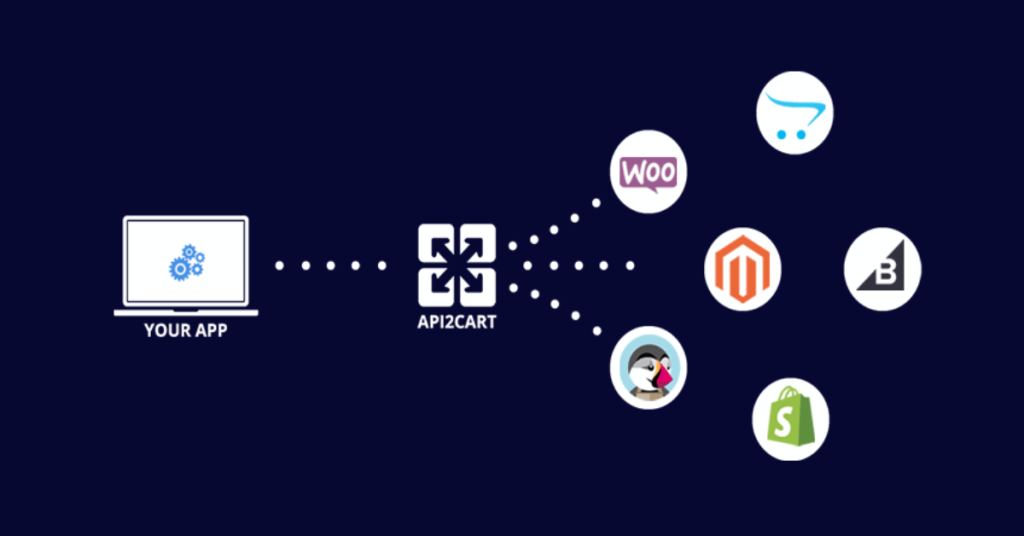
You can try API2Cart for a month totally for free and test all its API methods needed for working with the e-stores’ data from multiple eCommerce platforms. All you need to do is register your free trial account now with the help of our specialists. If you need any assistance, you can contact API2Cart managers by chat, email, or phone.
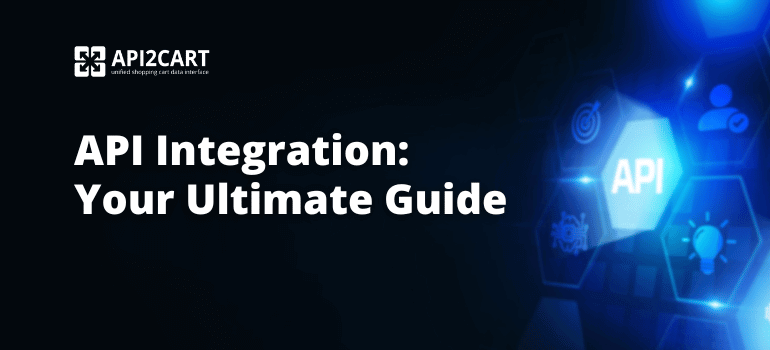
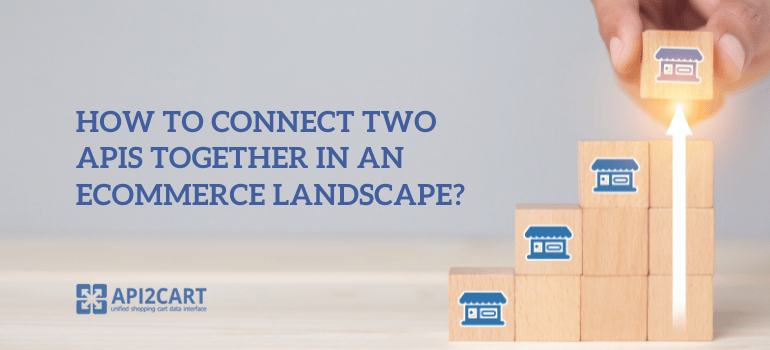
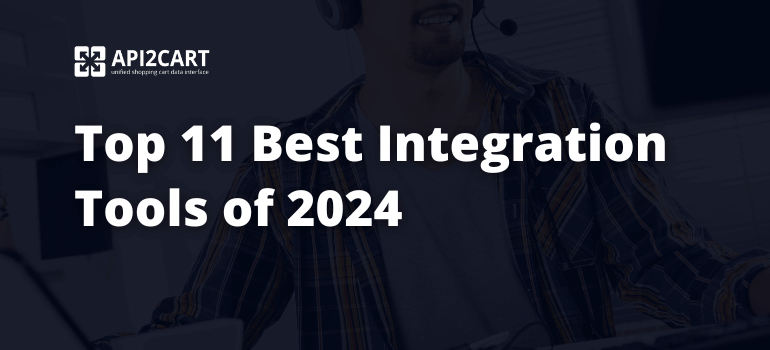

HealthStay
December 24, 2023 on 8:40 am
I am truly thankful to the owner of this web site who has shared this fantastic piece of writing at at this place.
Puravive Weight Loss
January 7, 2024 on 1:59 am
I loved you even more than you’ll say here. The picture is nice and your writing is stylish, but you read it quickly. I think you should give it another chance soon. I’ll likely do that again and again if you keep this walk safe.